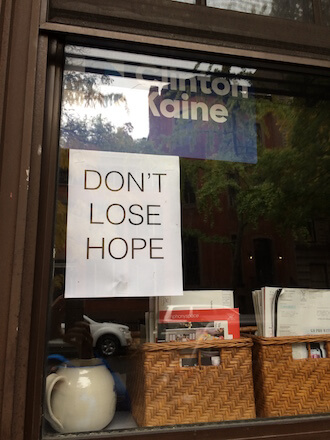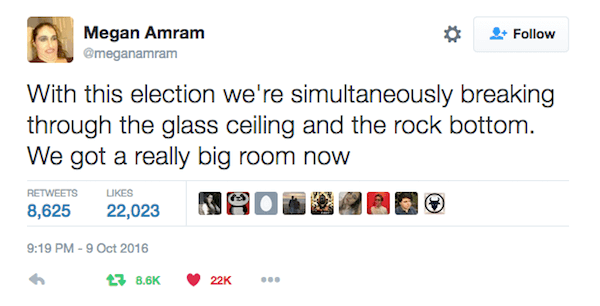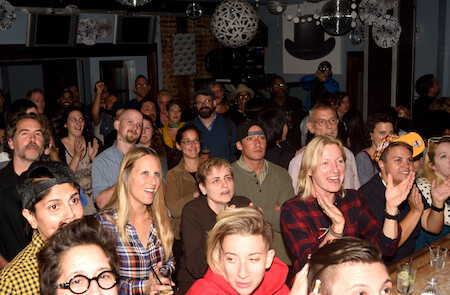Beth Shipp, who formerly was political director at NARAL Pro-Choice America, is executive director of LPAC. | TEAMLPAC.COM
The Lesbian Political Action Committee has picked some big winners since its inception in 2012.
LPAC endorsed President Barack Obama’s reelection right out of the box, and was part of several other victories that year that were less sure bets — Wisconsin Democrat Tammy Baldwin’s election as the first out lesbian member of the US Senate, as well as wins for Elizabeth Warren in the Massachusetts Senate race and for marriage equality in Maine and Washington State.
The following year, the group worked on the successful marriage fight in Illinois and helped reelect out lesbian Mayor Anise Parker in Houston. In 2014, LPAC endorsee Maura Healey of Massachusetts became the first out lesbian state attorney general in America, and last year the group supported Jackie Biskupski’s successful bid to become Salt Lake City’s first out LGBT mayor.
Founded in 2012, group’s wins include out candidates in Salt Lake City, Massachusetts, Wisconsin
In 2016, however, the group is going full throttle in what arguably is the most historically consequential effort it has faced — the election of the nation’s first woman president.
LPAC’s endorsement of Hillary Clinton, the former secretary of state and US senator from New York, came early — in April of last year, several weeks before Vermont Senator Bernie Sanders even joined the race officially.
In announcing the endorsement, the group characterized Clinton as “an unyielding advocate for LGBTQ women.” Beth Shipp, the group’s executive director, this month told Gay City News that LPAC places a high value on having “a woman in the White House, especially this woman.” Clinton’s experience — as first lady, US senator, and secretary of state — she said, is “unmatched,” particularly on issues of health care access, women’s rights, and a woman’s right to choose.
“We believe that Hillary is very progressive and has proved her bona fides time and time again,” Shipp explained.
The Democratic presidential primary contest, of course, became a whole lot more competitive than LPAC or anyone else could have predicted 13 months ago, and Shipp did not shrink from praising Sanders for making a positive contribution to the race. She did so, however, in a way that emphasized that he need not emerge successful out of the Philadelphia convention in July — which he almost certainly won’t — to be satisfied with the outcome.
“Bernie gets credit for getting her to appear to move to the left,” Shipp said. “Remember that Bernie didn’t originally get into race to win but to raise issues and move issues. And he has moved income inequality into the presidential race.”
Even as she conceded that Sanders has generally outflanked her candidate among young voters, Shipp pointed to many young women who have rallied to Clinton’s side in key contests.
“A certain segment of sexist language from Bernie bros is hurting him,” she said. “Some young women have had to take on mansplaining that’s gone on.”
And Shipp, pointing to LPAC’s board, pushed back on the notion that Sanders’ challenge to Clinton represents a fundamental confrontation between progressives and Democrats less moored to such principles.
Board member Urvashi Vaid, a former executive director of the LGBTQ Task Force and the head of its Policy Institute and co-founder of its Creating Change Conference, has also done social justice work at the Arcus Foundation and the Ford Foundation and prison reform work with the American Civil Liberties Union, and has served on the boards of both the LGBT-focused Gill Foundation and Planned Parenthood.
Dawn Laguens is an executive vice president with Planned Parenthood, Karen Dixon is on Lambda Legal’s board as well as the Democratic National Committee’s LGBT Leadership Council, and Diane Felicio is a top official at Community Catalyst, a consumer advocacy group focused on building a nationwide health justice movement.
Shipp herself went to LPAC from the post of political director at NARAL Pro-Choice America.
“The women at LPAC were always at the front lines,” she said, and then alluding to the perspective the group can add to Clinton’s fall race against Donald Trump, added, “But we weren’t listened to.”
Explaining that the group’s “job is to remind our community and allies where Trump has been misogynistic,” Shipp said, “If you’re a strong women, a strong LGBT person, a strong person of color, you’re going to be called names, because this is a white male patriarchal society.”
Lesbians, she argued, and women generally have a perspective that is needed in politics today.
“Part of the reason LPAC exists,” Shipp said, “is because of males who are not sensitive to women. And we were tired of walking into rooms with older white men deciding everything.”
Laura Ricketts, an attorney and part of owner of the Chicago Cubs, is LPAC’s board chair. | TEAMLPAC.COM
Pointing to LPAC’s board chair — an attorney active with Lambda Legal, Emily’s List, and the Democratic National Committee as well as a co-owner of the Chicago Cubs — she noted, “Laura Ricketts has said, ‘I don’t like politics, but I had to get in the game.’” With a father who is a significant funder of conservative Republican causes and a brother who won the Nebraska governorship with the support of Sarah Palin, Ricketts undoubtedly learned well the need to speak up for herself.
According to Shipp, LPAC hopes to have a budget of about $1.2 million for this election year and has endorsed a roster of other candidates including Wisconsin Democrat Russ Feingold, who is trying to return to the US Senate in a challenge to Republican Ron Johnson, Democratic Representative Tammy Duckworth, who is challenging GOP Senator Mark Kirk in Illinois, former Ohio Governor Ted Strickland who is taking on incumbent Republican Senator Rob Portman, and Congressmember Patrick Murphy, who is in a tight race with his Democratic House colleague Alan Grayson for their party’s nomination for the seat being vacated by Senator Marco Rubio. On the House side, the group is backing two out lesbian Democrats seeking to oust Republican incumbents — Angie Craig in Minnesota and Denise Juneau in Montana.
Earlier this spring, LPAC backed US Representative Donna Edwards, who lost her bid to run as the Democratic candidate to succeed retiring Senator Barbara Mikulski in a primary against her House colleague Christopher Van Hollen.
LPAC, Shipp insisted, is nonpartisan, but finding a Republican who merits the group’s support has been another matter so far. Endorsements are made based not only on a candidate’s LGBT rights record but also on their commitment to women’s equality, including reproductive choice, and social justice. Candidates opposed to abortion cannot win LPAC’s support, but the group has not made the death penalty a litmus test.
Given its relatively modest budget amidst the big-dollar PAC world, the group generally plays in races where a candidate has a shot at victory and LPAC’s money and influence on the ground can contribute to that outcome.
Given campaign contribution limits, much of LPAC’s influence comes from what it classifies as “education, awareness, and community” spending. In 2015, expenditures on that category were more than 10 times its direct candidate contributions, though that was in an election off-year, the Salt Lake City mayoral race probably its highest visibility push. Its direct candidate giving will be up significantly in 2016, but education and community-building efforts remain important.
That focus will bring LPAC to New York next month. In a benefit dubbed “Levity and Justice for All,” the group will host an evening of comedians and celebrities, including Kate Clinton, Rosie O'Donnell, Billie Jean King, Lea DeLaria, Judy Gold, and Marga Gomez, at Town Hall on June 16 (tickets are $60-$250 at teamlpac.com/levity).
The event, Shipp explained, “is larger scale organizing than we did last year,” but the goal is not only to raise funds but also to “build community.”
LPAC, she said, hopes to have an impact on LGBT awareness of what’s at stake in 2016. The group expects to see a lot of women turn out, but is optimistic that Town Hall will draw a good number of “our lesbros, as well.”































